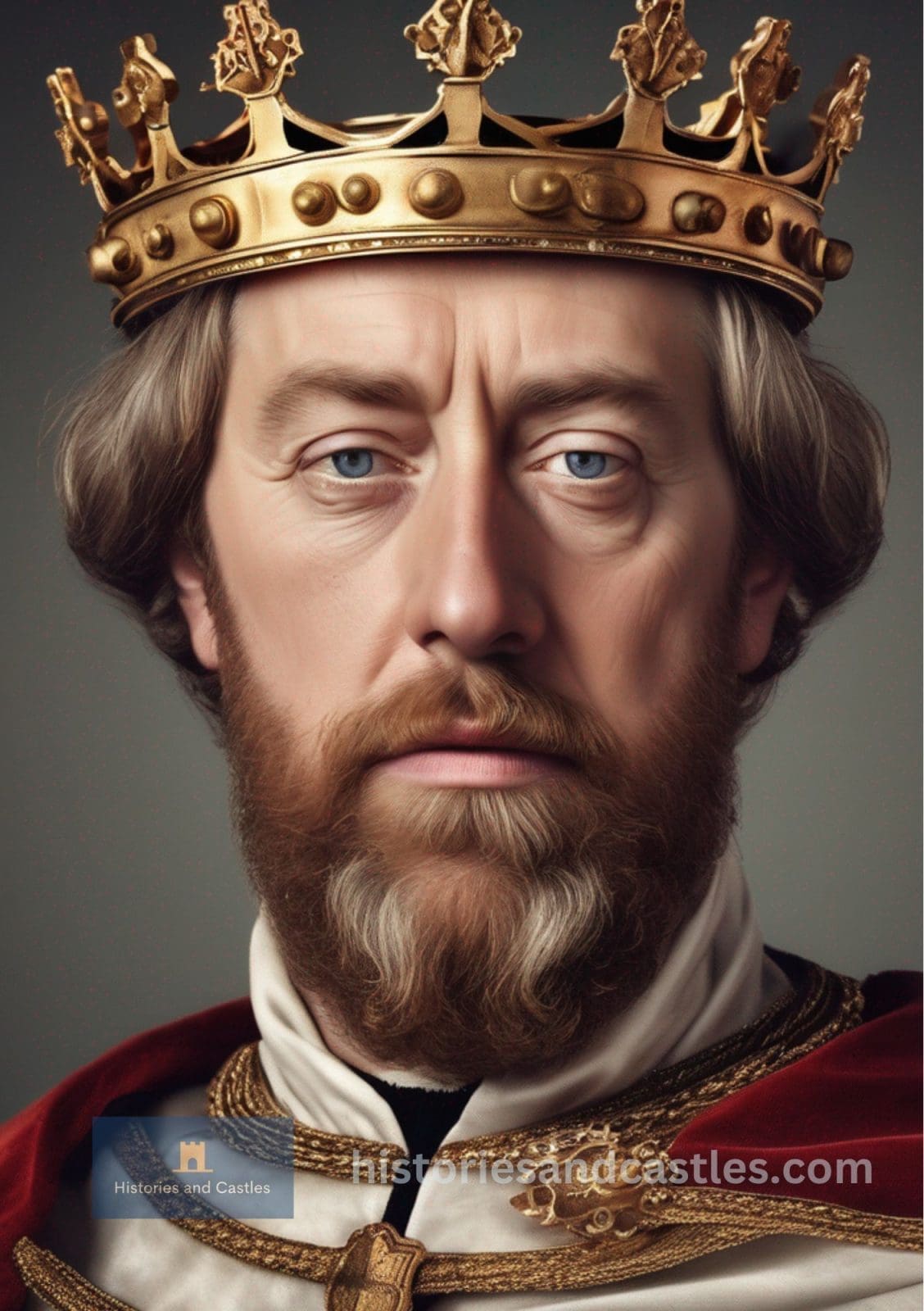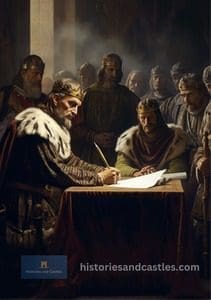
The Significance of Understanding King John in British History
Few monarchs in British history have earned such enduring infamy as King John. Remembered by many as the villain in Robin Hood tales, John is often portrayed as treacherous, greedy, and inept. Yet beyond the legends lies a far more complex and historically significant figure. To understand King John is to uncover the roots of English liberty, royal power struggles, and the fragile relationship between crown and country. His reign may have ended in disaster, but its consequences still shape Britain to this day.
A Troubled Prince in a Turbulent Dynasty
Born on Christmas Eve 1166, John was the youngest son of Henry II and Eleanor of Aquitaine—an extraordinary couple whose marriage brought vast territories in France under English control. John’s nickname, Lackland, came from his lack of inheritance, as his elder brothers had already claimed major titles. Ironically, he would go on to become king of England in 1199 after the death of his brother, Richard the Lionheart.
However, John was not the natural choice of ruler. His previous betrayals, failed rebellions, and lack of military prowess made him a dubious candidate. Nevertheless, he inherited a vast empire stretching from the Scottish borders to the Pyrenees. It would not remain intact for long.
The Loss of Normandy and a Kingdom Divided
One of the most catastrophic events of John’s reign was the loss of Normandy and much of his French territories. In 1204, after a series of strategic blunders and the alienation of powerful nobles, King Philip II of France seized Normandy. This defeat was not merely territorial; it was a deep psychological blow to English pride and nobility. Many Anglo-Norman barons held estates on both sides of the Channel, and John’s failure put their fortunes—and loyalties—at risk.
In response, John levied heavy taxes and scutage (payments in lieu of military service) to fund military campaigns aimed at reclaiming his lost lands. Yet his efforts largely failed. His disastrous defeat at the Battle of Bouvines in 1214 not only ended hopes of regaining Normandy, but also severely undermined his credibility with England’s barons.
Tyranny and Taxation: The Seeds of Rebellion
If John’s foreign policy was poor, his domestic policy was worse. Desperate for money, he exploited feudal customs and imposed unprecedented financial burdens on his subjects. He fined widows for not remarrying, demanded outrageous sums for inheritances, and sold justice to the highest bidder. Even the Church was not spared—John’s bitter quarrel with Pope Innocent III led to England being placed under interdict in 1208, banning all church services for six years.
Eventually, in 1213, John made peace with the Pope, even surrendering England as a papal fief in exchange for papal support. To many, it was the ultimate humiliation: the King of England submitting to Rome. These abuses of power, combined with military failure and religious disgrace, drove his barons to breaking point.
Magna Carta: A Medieval Revolution
The most enduring legacy of King John’s reign came in 1215 at Runnymede, when a group of rebel barons forced the king to agree to a list of demands now known as the Magna Carta. This “Great Charter” sought to limit royal authority, protect baronial rights, and ensure fair justice. Clauses guaranteed protection from illegal imprisonment, swift justice, and limits on feudal payments to the Crown.
Though intended as a practical solution to a political crisis, Magna Carta became a symbol of liberty. While many of its original clauses were specific to feudal concerns, its core principles—no one is above the law and the right to a fair trial—echoed through the centuries. It inspired future constitutional developments, from the English Civil War to the American Revolution.
Of course, John had no intention of keeping his promises. He quickly appealed to the Pope, who annulled the charter, plunging the country into civil war. John’s death in 1216, likely from dysentery during a campaign in the East of England, brought the conflict to a close. His young son, Henry III, reissued a revised version of Magna Carta, helping to secure peace.

The Legacy of a Villain
So why does King John remain such a vilified figure? Part of it is his behaviour—his greed, cruelty, and pettiness were recorded even by his contemporaries. Chroniclers described him as a man who starved his enemies to death, seduced noblewomen, and murdered his own nephew (Arthur of Brittany). Even in an age of brutal monarchs, John stood out.
Yet much of his reputation also comes from later writers, particularly during the reign of his great-grandson, Edward I. The Robin Hood legends painted John as a cowardly usurper oppressing the English while Richard the Lionheart fought abroad. These tales, passed down over generations, solidified the image of John as England’s worst king.
Still, history has not been entirely unkind. Modern historians view John’s reign as pivotal. While he failed as a leader, his excesses provoked vital changes in governance. In many ways, his mistakes laid the groundwork for parliamentary democracy. Without John, there might be no Magna Carta. And without Magna Carta, no Bill of Rights or constitutional government.
Why King John Still Matters
For readers in England and Wales, King John’s reign represents a turning point in the story of liberty and law. His failures forced a medieval society to reconsider the nature of royal power. At a time when kings ruled by divine right and absolute authority, Magna Carta was revolutionary. It challenged the idea that the monarch was untouchable and planted the seeds of accountability.
Today, visitors to Runnymede can walk the very field where these ideas were born. The Magna Carta Memorial stands as a quiet reminder of the struggle between tyranny and justice—one that still resonates in the modern world.
Understanding King John is not about celebrating his reign, but recognising the consequences of unchecked power. His story is a cautionary tale, a lesson in leadership, and a reminder that even the worst kings can leave behind the most enduring legacies.
From Villain to Catalyst
King John may have ruled poorly, but his reign ushered in one of the most important documents in British history. Through his missteps, England took its first steps toward constitutional monarchy, civil liberties, and the rule of law.
By exploring his story, we see how even failure can shape the future. John was not just a tyrant—he was the spark that lit the flame of freedom.
Discover more from Histories and Castles
Subscribe to get the latest posts sent to your email.
